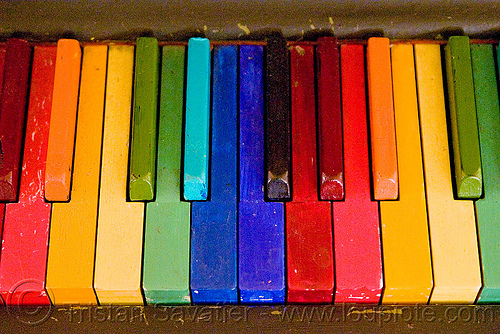When I started
studying the Korean alphabet, I found many charts that neatly lined up each
Korean letter with its English equivalent.
ㄷ= D, ㅌ = T, and so on.
It seemed pretty straightforward.
However, there were certain letters that seemed confusing at first. For instance, ㄱ = G/K, and ㄹ = R/L. These Korean letters were described as being
“in between” their two English equivalents.
ㄹ is neither an R nor an L sound, but somewhere in
between: a sound that simply doesn’t exist in English. I found this to be one of the hardest things
about Korean—learning to hear and pronounce totally new sounds from
scratch. However, I soon realized that
this state of being “in between” didn’t apply only to a couple of letters in
the Korean alphabet; in fact, it applied to most
Korean letters. Looking at the Korean
alphabet as a series of equivalents to the English alphabet really doesn’t
work. I had to change my whole frame of
reference in order to pronounce Korean correctly. That’s when I really started thinking about
language sounds as being part of a sliding spectrum.
Really, all sounds are
part of a sliding spectrum. This is a
very familiar idea to musicians, but one which, for some reason, is almost
never mentioned in language classes. For
instance, there might be only 88 keys on a piano, but really there are an
infinite number of possible pitches within that range. In Western music, we have chosen to break up the
spectrum into half steps and whole steps to form scales, but there is also
space between the notes. A violin can slide between B and B-flat for
instance, covering all the pitches in between.
Those unused pitches still exist, even though Western music is not
designed to include them.
The same idea applies to
pronunciation and the sounds that make up languages.
In Korean, for instance,
the letter ㅂis often equated with the English letter B. This isn’t really accurate though. There is a whole spectrum of sounds that
human beings can make with their lips, and ㅂand B actually
fall in slightly different places on that spectrum.
Here is my chart showing where
letters in the English and Korean alphabets really are in relation to each other. Each spectrum is divided
according to which part of the mouth you use to make these sounds.*
*I could use linguistic terms for these, like bilabial
and aspirated, but I’d rather put this in laymen’s terms.
With all of these
spectrums, the middle sound is actually the gentlest. The farther to the right or left a letter is,
the more tension you put into the lips, throat, or tongue in order to produce
it. For example, ㅉ is a harder,
over-emphasized version of J, while ㅊ is like an over-emphasized CH. The ㅈ in the middle is a very gentle blend of the J and
CH sounds.
Really, the difference
between all these sounds is rather slight, so at first, you might have trouble
distinguishing between the sounds of ㅉ, J, and ㅈ, for example; but with time and practice you can
learn to hear the difference.
Then, of course, there is
also the aforementioned R & L spectrum:
A lot of English-speakers
find it hard to believe that there’s much similarity between the R and L
sounds—I know I did, at first. But for
the Korean ㄹ, just try to imagine it as a very short, gently rolled R. It’s not quite like the rolled R’s that you
find in Spanish or Italian, but the tongue motion is very similar. You just roll it once, instead of sustaining the roll like you would in
Spanish.
And lastly, there are all these
consonants, which really do have
English equivalents:
M = ㅁ
N = ㄴ
NG = ㅇ
S = ㅅ
H = ㅎ
I could talk about Korean vowels, but I think that might be a post for another time. ^_^ Anyways, I hope that if you're studying Korean, or teaching English in Korea, you'll find this article helpful!



.png)